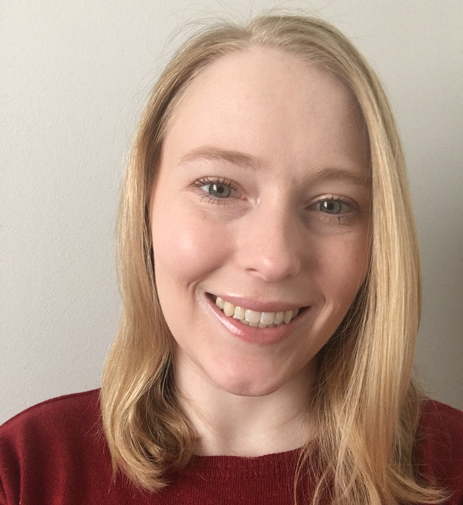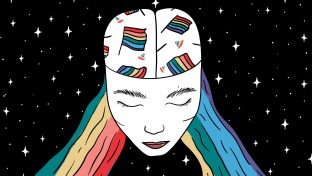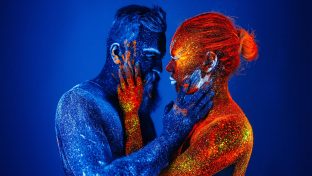Why Do Gay Men Often Deal With Feelings Of Loneliness?
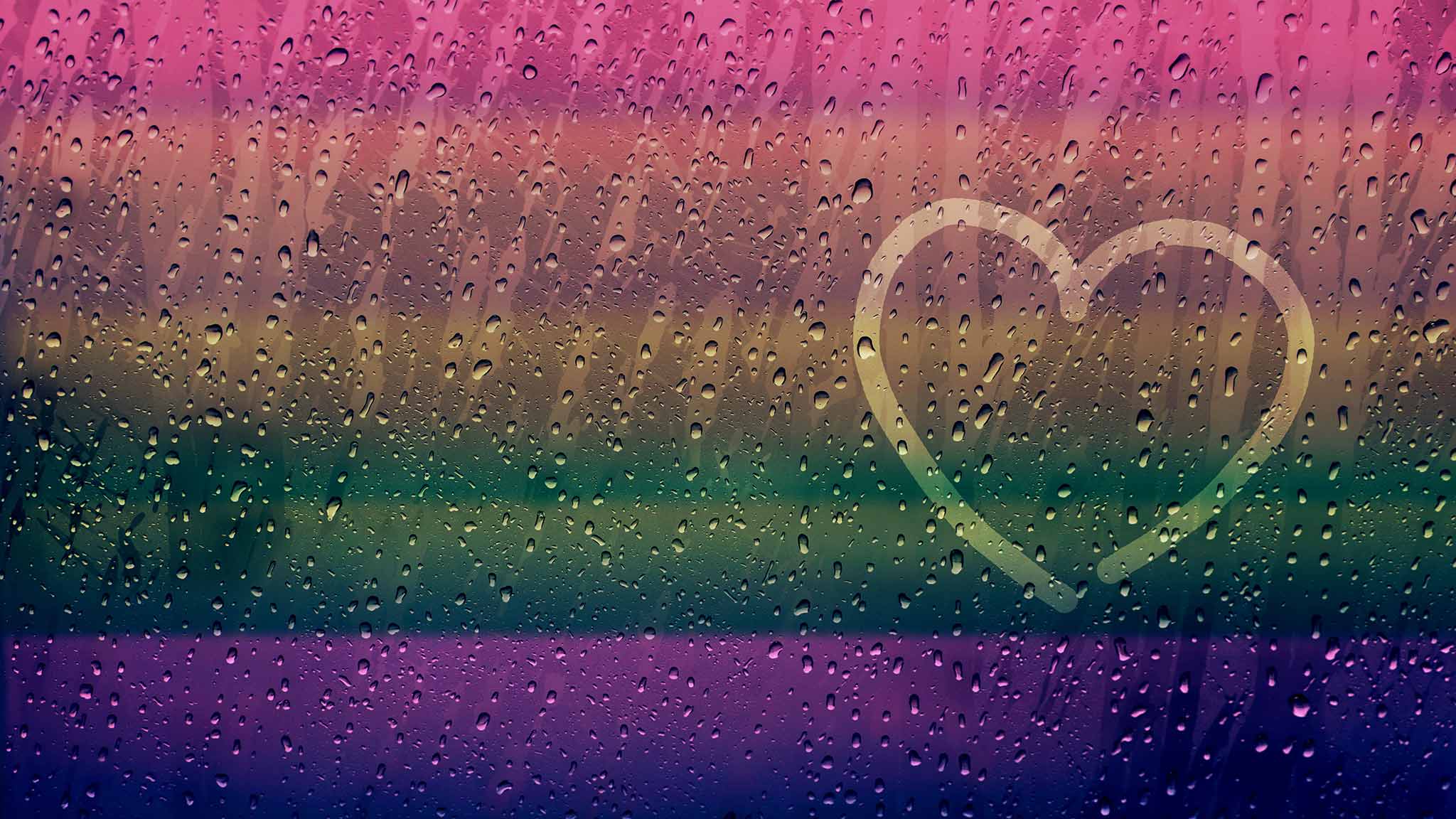
Loneliness is an incredibly common problem for gay men of all ages and backgrounds.
- Many gay men said that they’ve felt lonely beginning from a young age due to feeling dissimilar from their peers, even if they weren’t sure why they were different, and this sense of loneliness often seems to follow gay men into adulthood.
- Many gay men turn to alcohol or drugs, not with the intent to become addicted to a substance but to temporarily forget about their feelings of sadness, stress, and loneliness.
- No matter where you are in life — whether you’re completely out of the closet or still questioning your sexuality — it’s important to know how to cope with loneliness.
Struggling with loneliness or having a mental health crisis?
- Suicide Prevention Lifeline: 1-800-273-TALK (8255); Deaf or hard of hearing dial 711 before the number or connect via online chat
Luke wanted to disappear amid the slamming of metal doors and loud voices of teenage boys that echoed through the high school locker room.
At 14-years-old, he admitted to himself that he was gay.
While this realization brought clarity, it also caused others to see him as something “different.”
Attending school in a small town outside of Birmingham, Alabama, gym class made Luke acutely aware of how people really felt toward him.
“The loneliest I have ever felt in relation to being gay was around straight males during high school,” Luke, who is now 26, said. “In [my] small town, being gay was certainly not the ‘cool’ thing to do.”
“The worst was P.E. class,” he recalled. “Boys and girls were separated, and unless one of my few male friends was in the same class, I was utterly alone.
“Part of it was because other guys kept their distance from me, but another part was because I assumed I couldn’t fit in with straight guys. Those two factors kept me from engaging with the boys around me.”
“I dreaded that class every day,” he admitted.
Overwhelmed by other boys’ reactions and his own feelings of shame over his sexuality, Luke kept to himself, spending much of his time reading or on his phone.
Although he made sure to stay connected with supportive friends and family during high school, loneliness was always just a gym class away.
Even those who are open about their sexuality can struggle with loneliness, but why do so many gay men feel lonely?
What Is Gay Loneliness And How Does It Affect Men?
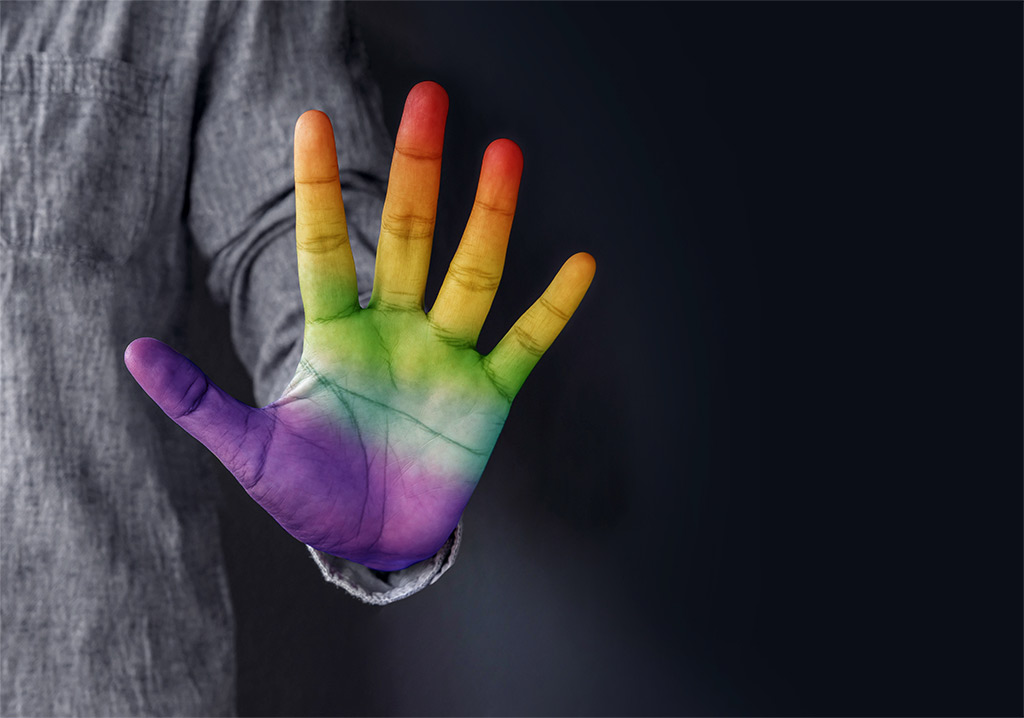
Depictions of homosexual men in modern media are largely more positive than they used to be, as demonstrated by the smart and successful stars of Queer Eye.
But that doesn’t mean that life for gay men is always cheerful and happy. It’s rare to see honest narratives about their loneliness in mainstream media.
I spoke with gay men of varying ages and backgrounds and although they were complete strangers to one another, loneliness was a common thread that tied their stories together.
Tracey, a 27-year-old from Akron, Ohio, said that he often felt lonely as a child because he grew up feeling different from everyone else around him.
He explained that some of his loneliness stemmed from growing up as an only child, but at the same time, he “naturally just felt different from a lot of people.”
“I wasn’t into sports too much like the other boys my age,” he said, adding that he was more interested in music, pop culture, and fashion.
“[So that] would make me feel disconnected from boys my age in a lot of ways,” Tracey observed. “I had a good amount of female friends, even though it’s not the same as having close friendships with other guys.”
Although Tracey has been able to explore his interests freely and is much more confident in his sexuality than he was previously, he still experiences loneliness — and he worries about being lonely in the future.
“As I grew older, the loneliness was, and is, still here due to being single and always questioning if I will ever find someone who can and will love me how I deserve to be loved,” Tracey said.
As someone who identifies as queer, I understand how lonely and difficult it can be to feel different from others, even as an adult.
Being single or unable to find a kindred spirit, soulmate, or twin flame — especially during a global pandemic like COVID-19 — just adds on another layer of loneliness.
Michael, an actor in his early thirties from California, told me that a variety of factors have contributed to his loneliness as a gay man — like being Black and growing up in the South.
Loneliness was a common companion while he was growing up and it continued during his college years, lasting through his twenties.
“I felt most family and friends didn’t fully understand me, but they loved me — this still wasn’t enough,” Michael explained. “I needed more, and quietly pleaded for more from them, which I didn’t get.”
“These moments alone forced me to grow up and figure out my life mostly on my own.”
Beyond the personal experiences of the men I spoke with, scientific research also suggests that loneliness is incredibly common in gay men.
Living alone and having few social contacts increases the likelihood of loneliness in gay men.
Additionally, a 2019 study found that gay men aged 25-29 and living in China were eight times more likely to feel criticized and rejected — feelings linked with loneliness — compared to their younger counterparts.
David Bowers, Ph.D., IMFT (Independent Marriage and Family Therapist) explained that gay men are prone to experiencing loneliness because of their minority status, regardless of whether they are “in the closet” or not.
He told me:
“Studies suggest that many of the ills for which gay men are at greater risk, including loneliness, arise out of their experience of minority stress and structural heteronormativity rather than anything ‘wrong’ with the men themselves.
For example, recognition of gay marriage is still pretty recent in most countries and one needn’t go too far back to find homosexuality defined as mental illness and acts of gay love as illegal.
Thus, there are many structural forces embedded in society pulling gay men towards more solitary lives.”
If you’re asking yourself the question, “Why didn’t gay rights cure gay loneliness,” you’re not alone. Society has come a long way — but not yet far enough.
There are a few heavy things that factor into the epidemic of gay loneliness, as we’ll talk about.
Why Are So Many Gay Men Lonely?

Even if they’re completely open about their sexuality, gay men often experience feelings of loneliness — as do men in general.
We’ll take a deeper look at the three most prevalent reasons why.
Being A Gay Man Still Isn’t Accepted By Everyone
Over the past few decades, attitudes towards gay people and the LGBTQ+ community as a whole have largely improved.
A 2019 survey showed that 72% of people in the United States say that being gay should be accepted, which is an increase of over 10% since 2010.
While these numbers are certainly encouraging, it still means that more than a quarter of the United States population doesn’t think being gay or queer is acceptable.
For gay men — and all queer people — running into someone who belongs to that 28% can be demoralizing.
What’s worse than hearing that negative opinion from a stranger, however, is discovering that a loved one shares it.
Tracey, the 27-year-old from Akron I spoke with earlier, grew up surrounded by the belief that being gay was “wrong,” partly due to his community and Christian upbringing.
This, he said, affected the way he viewed himself and contributed to his feelings of loneliness.
“For as long as I could remember, I had some kind of affinity towards men,” Tracey said.
“I would always find guys attractive, but felt like it was wrong due to my Christian upbringing and also from being a Black male,” he explained.
“In the Black community, homosexuality, especially when I was younger, in the early 2000s, was a taboo topic.”
Gay men of color are often perceived as being “more white,” in part due to the stereotype of gay men being effeminate in general.
Being gay doesn’t erase one’s race, but your community’s negative perceptions of gay men can cause you to feel distant — and different — from your loved ones, as Tracey describes.
The idea that gay men are effeminate isn’t exclusive to one particular community, however.
Several studies show that heterosexual men often believe being a feminine man is a negative thing, and that gay men are feminine.
In those studies, heterosexual men also believed that being perceived as “traditionally masculine” or a “real man” is associated with being heterosexual.
Part of being an adult is realizing that you don’t have to always listen to other people’s opinions of you.
This can be incredibly freeing — especially for gay people who grew up in environments that weren’t inclusive or accepting of LGBTQ+ people.
Still, even adults who are aware of this want approval from the people they love.
Luke, a 26-year-old from Birmingham, Alabama, said that he grew up around other people who made their disdain of gay people known, and it made him feel like an outcast at times. He told me:
“I was picked on some in high school for being gay. For most of my [teen] years, I was the only out guy in school. It definitely could’ve been worse, but it still made a lot of high school unpleasant for me.
In college and adulthood, I didn’t really have a problem. There was the rare person who murmured a slur or shot a dirty look, but they were far and few between.
Getting my family fully on board has been a years-long process, but they never stopped loving me and have come really far, especially being from a conservative, Southern background.”
Self-Acceptance Isn’t Always Easy
Learning to fully love and accept every part of yourself, including your sexuality, isn’t often a short or simple process.
When you don’t like something that is an integral part of your identity, it’s hard not to feel lonely.
This can be particularly difficult for gay men who experience internalized homophobia — negative stereotypes or beliefs about being gay that stem from within — when trying to feel at ease with themselves and their sexuality.
Internalized homophobia can also result in gay men feeling unhappy in other areas of their life, too, as it’s been linked with depression and relationship problems.
As a result, gay men who are struggling with self-acceptance may either isolate themselves from others or try to appear “more masculine” — both of which can make their loneliness worse.
Nick, a 33-year-old man from Texas, said that he spent years dealing with internalized homophobia as a young adult, trying to “overcompensate” for being gay only to feel increasingly isolated and alone.
“I hated myself for being gay, so I attempted to overcompensate for this ‘wrongness’ by being perfect and a star student,” Nick said.
“I studied classical music in college for the sole purpose of being able to lock myself into a practice room all day and just work on becoming perfect all day long,” he continued.
He admits that has found it difficult to connect with people ever since.
Luke, the 26-year-old from Alabama, faced a similar struggle.
He said that traditional concepts of masculinity previously made him think less of himself when compared to straight men because he associated being gay with a lack of masculinity. He said:
“I’ve worked to disconnect masculinity and sexuality, meaning that I feel much more comfortable around straight men now, whereas I used to view myself as second-class compared to them. I think curing loneliness is better than coping.”
Nick and Luke’s complex feelings around the concepts of masculinity and shame as gay men aren’t unusual.
In one study, 24% of gay men said they “were unable to list how masculine ideals positively impacted their self-image,” and 7% of them said that those same concepts made it harder to express their emotions.
With the combination of low self-esteem and ineffective communication, it’s easy for a person to become lonely.
My own feelings of internalized homophobia centered around ideas of religion and femininity, however, I easily connected with Nick and Luke’s stories.
It’s taken me years to learn to be okay with my identity and to gain confidence while shedding those familiar feelings of shame.
Although it’s only logical that it takes time to change what you think and how you feel about yourself — after all, it can take months to change small, routine habits in your day — the process of gaining self-acceptance can be agonizingly slow and incredibly lonely.
Finding Other Gay Or Queer Friends — Or Love Interests — Can Be Difficult
If you’re part of the LGBTQ+ community, close relationships with other queer people can be incredibly validating.
Even on your hardest days, knowing that you have a partner or a group of friends and kindred spirits who can offer advice and comfort makes you feel a little less alone.
However, finding people you can fully trust and relate to isn’t always easy.
Places created specifically for LGBTQ+ individuals are disappearing and becoming more difficult to find, with the overall number of gay bars declining by ~37% between 2007 and 2019.
Part of this decline is due to gentrification.
Lower-income areas that were once “claimed” by the LGBTQ+ community became popular, eventually drawing the attention of the wealthy and leading to investment, renovation, increasing property values — and higher rents.
Another reason for the decline relates to broadening inclusivity. Most queer bars have branded themselves as LGBTQ+, rather than gay- or lesbian-specific.
Finally — and this also relates to another positive trend — there is a greater acceptance of homosexuality in general.
Particularly in more diverse communities, many gay men and women no longer feel the need to congregate in bars that cater to those who share their sexuality.
Without spaces created specifically for queer people, however, it can be challenging to make connections.
D. Gilson, a writer and researcher in his late-forties, said that it was easier for him to first find a community online before finding one offline. He explained:
“Sometimes [gay men are] rejected by our biological families, but we learn to build our own queer families. Gay men had a very early pulse on the idea of social media, which can both cause and alleviate loneliness. For many of us, we came out online before we came out in ‘real life.’”
Like D., I also used the internet as a way to connect with other queer people. I found solace and refuge in these communities and by listening to others’ stories, I slowly began to feel more confident in my identity.
As much as gay men appreciated having access to these places online — and still do — they aren’t a replacement for in-person connections.
Many gay men struggle to open up to others, psychiatrist Dr. Jared Heathman explained, and this can make it particularly difficult for them to find a community or a partner. He told me:
“There is still a stigma behind being gay which can naturally result in anxiety about opening up to others. Depending on the geographical location, there may not be a large gay population with which to find suitable friends, dates, and like-minded peers.”
For gay men of color, racism in queer spaces can make it even more difficult to find other gay or queer friends, and this can amplify feelings of loneliness.
Tracey, the Black gay man from Akron who works as a nurse aide, said that finding other gay men, and queer people in general, has been hard at times.
“I personally haven’t found my own community of LGBTQ+ people,” Tracey said. “I am a loner and an ambivert [and can be introverted and extroverted]. I also grew up as an only child, so forming close bonds is important to me.”
“However, I do have [my] guard up to a lot of people, and sometimes it is hard for me to allow people into my personal space and heart,” he explained. “One day, though, I hope to find my tribe.”
Tracey added that racism has played a role in the way he and his friends have been treated in queer spaces, making him wary of others. He told me:
“In the world in general, there’s a fetish in regards to Black men, especially in relation to the stereotype of Black men having endowed members.
In more specific LGBT terms, you have some people chasing after ‘BBC’ (big Black cock), and even have some people who are into ‘race play,’ which is literally a fetish of acting out racially-charged situations — an example being a white man dominating a Black man and referring to him as a slave or using other derogatory language.
My personal experiences with some white LGBT men [have] pushed me to pursue relationships exclusively with Black or minority LGBT men, just because there is an anxiety or fear of potentially getting into a relationship with someone who won’t understand or value my Blackness and my specific, unique Blackness.”
Additionally, transphobia in queer spaces is an unfortunately common occurrence. Understandably, this can make it hard for trans gay men to find communities where they feel comfortable.
Supportive, inclusive communities do exist, of course. However, it can be exhausting to find spaces that make gay and queer men feel at home.
Without access to them, it’s easy to feel isolated and lonely.
There are many reasons why gay men often feel lonely. Even though acceptance towards gay people has improved in recent years, more than one in four people in the U.S. still don’t think it’s acceptable to be gay. Homosexual men whose loved ones don’t accept them are likely to feel lonely.
Additionally, self-acceptance doesn’t always come naturally to gay men, especially those who have internalized negative beliefs about being gay. Feeling shame or guilt around their sexuality can make gay men feel isolated and alone.
Finally, it’s often hard for homosexual men to find spaces that are made specifically for gay and queer people. Racism and transphobia also exist within the gay community, which can make it especially hard for gay people to feel as if they can be themselves around others.
The Link Between Loneliness And Substance Abuse In Gay Men
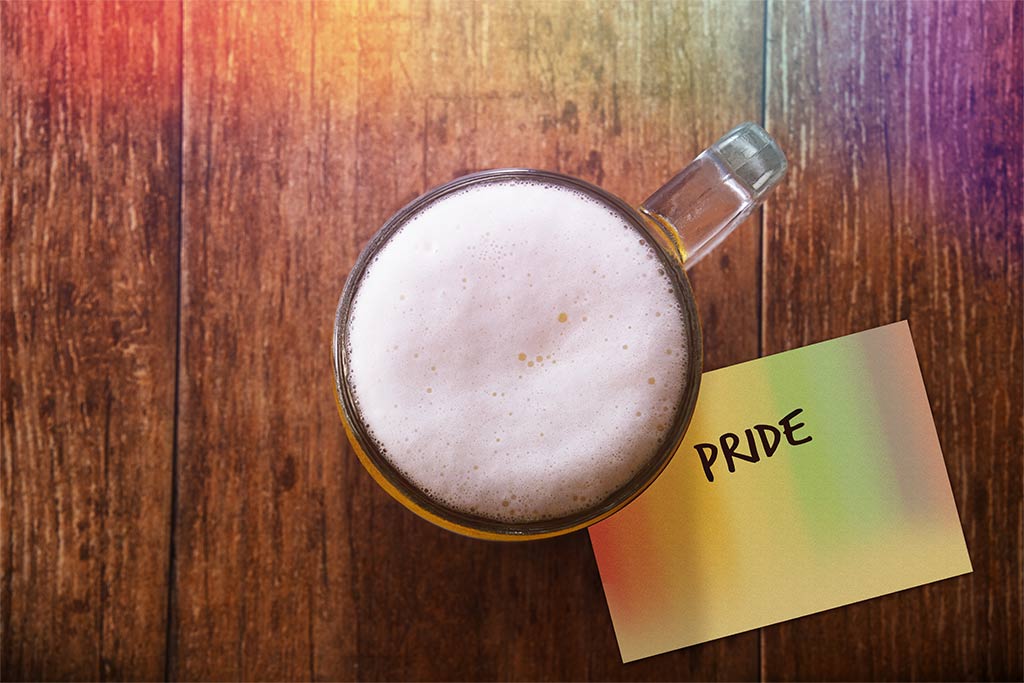
Though the reasons gay men frequently experience loneliness can vary, using drugs or alcohol to cope with it is common in both gay men and the queer community as a whole.
Luke, the 26-year-old from Alabama I spoke with earlier, said that he often used alcohol as a young adult in hopes of lessening his feelings of loneliness. He explained:
“When I was in late high school and early college, I used alcohol as a social crutch to make up for some of the effects loneliness had on my self-confidence, especially around straight males.
It gave me the courage I lacked to interact normally with people I didn’t know and [with] those I thought would judge me. Luckily, I eventually realized that people like me just fine, even when I’m not drinking.”
Similarly, Nick, a writer in his early thirties from Texas, said that he used alcohol in the past in an attempt to feel more confident and less lonely.
“Even after you come out, the overcompensation triggers continue — sometimes for a lifetime,” Nick said.
“It’s hard to allow yourself to be vulnerable when you’ve spent your existence trying to overcompensate for something. Alcohol has been a vice for years — liquid courage in a sense.”
Nick said that many of his peers use substances to numb their feelings of loneliness. He added that some have also used sex to achieve the same effect.
Though quite a few men I spoke with hadn’t experienced any issues with substance abuse, I was surprised to discover that every one of them knew someone in the gay community who abused alcohol or drugs.
While I don’t have personal experience with substance abuse, it’s something I’ve become increasingly aware of over the years, especially as I began to explore my sexuality.
When you feel overwhelmingly alone and don’t have the right skills to cope with your feelings, it’s easy to convince yourself that what you’re doing is okay as long as you don’t have to focus on your emotions — even if it is harmful.
Gay men with substance abuse issues are also more likely to develop psychiatric conditions, such as depression, and both substance abuse and depression can worsen loneliness.
The combination of mental illness, substance abuse, and loneliness can create a repetitive cycle of self-destructive behaviors.
In addition to being prone to substance abuse and mental illness, lonely gay men are also more likely to engage in other risky behaviors.
One study found that gay men who were lonely were more likely to have unprotected sex than those who weren’t.
Dr. Jared Heathman, the psychiatrist I spoke with, explained that individuals often use alcohol or drugs or engage in risky behaviors to dull their feelings of stress, loneliness, and anxiety. He told me:
“One of the more common reasons for people to initially indulge in substances is anxiety. Anxiety and stress are uncomfortable, and it is natural to want to seek a solution to this negative feeling.
Substance use is a harmful coping skill. While exercise, meditation, and counseling are positive coping skills, not everyone finds a healthy coping skill first.
The gay population has more to be anxious about — there is still an unhealthy portion of the heterosexual population that is unaccepting, disrespectful, or even violent toward gay men.”
For gay men who face minority stress and who don’t have a supportive network in place, coping with loneliness by using drugs or alcohol may not be a conscious choice.
What starts as a way to blow off steam can easily turn into a dangerous addiction.
Coping with loneliness is hard, however, there are certain methods of coping that can amplify loneliness and cause further harm to an individual. Gay men often begin abusing substances in an attempt to cope with anxiety and loneliness related to being gay, but the habit can turn into an addiction.
Why Joining A Community Often Helps Alleviate Gay Loneliness
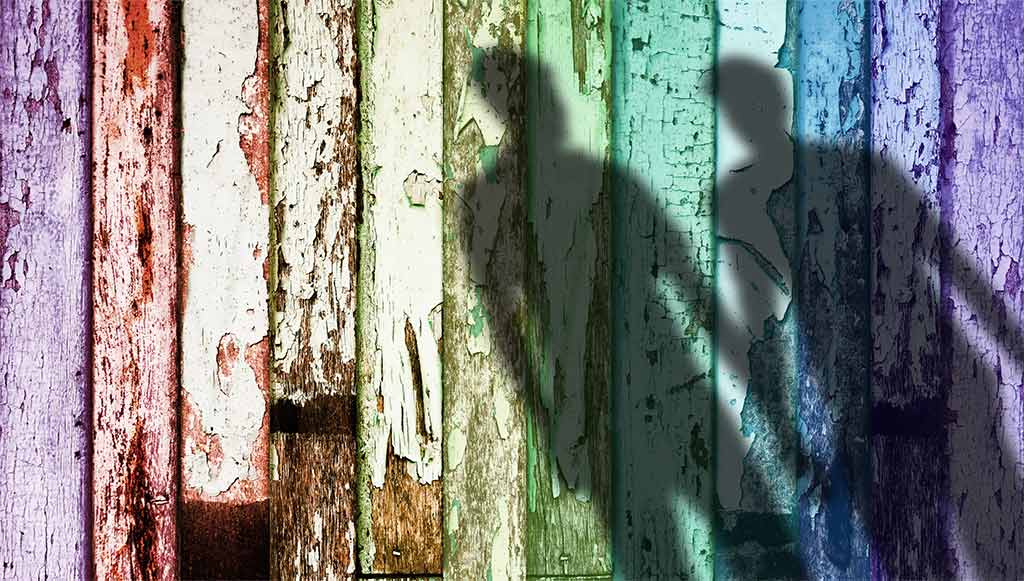
With so many potential causes of stress for gay people, having a community to turn to for support can be life-saving.
Dr. Raffaello Antonino, a clinical director and counseling psychologist from London, explained why being part of a community is important for everyone, especially for those who are marginalized due to their identities. He told me:
“The most important reason [to join a community] is arguably that of a community representing the antidote to loneliness. Everybody needs a community as we as humans are born with a need to belong, which permeates our entire existence.
For gay men who experience multiple challenges which non-gay men may never have to experience, finding a community may be even more crucial and vital. It can help fulfill their need to belong, to feel accepted and appreciated.
Belonging to a community is also a factor which can mediate the formation of family unity, which is less likely to be found when belonging to and hanging out with a non-gay community.”
Luke, who realized he was gay when he was 14-years-old, said that having a supportive network of friends helped him feel less alone, especially since it took years for his family to fully accept his sexuality. He told me:
“Since being out, I’ve always had gay people in my life to some degree, and that has made a huge impact on preventing me from feeling lonely. In college, I found an amazing group of gay, supportive friends.
Nowadays, my friends are a mixture of gay and straight people. For those of us in the South especially, we understand the importance of sticking together and being there for each other as LGBTQ+ people.”
Luke added that those who aren’t able to connect with people in-person can still benefit from the encouragement of a community.
“There is nothing better than the support of others who have been in your shoes,” Luke said. “Even if you live in an area without a lot of openly gay people, the internet is an incredible way to make connections and find people like yourself.”
“Being gay can be a challenge in itself, so make sure you have people to support you along the way,” he added.
Like Luke, I’ve also found immense support from close friends. My queer friends and my non-queer friends have been there to listen and offer advice, which I’ve appreciated.
Having queer friends who have already come out to everyone in their lives has been particularly helpful for me, too, because it reminds me that I’m not alone in my experience.
For queer and trans people of color (QTPOC), it’s especially important to have spaces created specifically for them.
Ideally, spaces for QTPOC can help to ensure individuals can feel comfortable and open in sharing their experiences without having to worry about racism and transphobia.
Michael, a Black actor who has lived both in Los Angeles and Las Vegas, said that finding communities wherever he goes is always a priority.
“I’ve been able to locate communities of gay and queer people, especially living in the Los Angeles and Las Vegas areas,” Michael said. “[It’s] always wonderful to know that I have support and can provide support whenever needed!”
In addition to finding a community, there are several other ways gay men — and all queer people — can cope with feelings of loneliness.
Michael said that he’s discovered strategies that work for him over time, helping him to deal with the stressors in his life, whatever they may be. He told me:
“I’ve coped [with stress] in numerous ways, [especially] by staying physically, mentally, and emotionally active and healthy! Some of these [activities] include: working out regularly in the gym, taking up yoga and pilates, playing sports, keeping my diet as strict and healthy as possible, keeping in [close] communication with my closest family and friends, and healing from my past traumas and losses both professionally and personally.”
In my own experience, finding queer role models to look up to has been incredibly valuable.
Listening to podcasts, watching videos, and reading books by queer people who are at different stages in their lives makes me hopeful for my future.
Additionally, going to therapy has given me a place to talk freely about any frustrations or worries I feel about coming out or my sexuality in general.
A group of friends can’t remove your stress completely. But knowing that you have people who love and support you, along with finding effective coping strategies, can make you feel less alone as a queer person.
Having a group of loving friends and learning specific coping strategies that help you feel good can make you feel less alone.
Closing Thoughts
If you are a gay man who is lonely now, or if you’ve felt lonely for a long time, it may seem impossible that there will ever exist a time when you don’t feel that way.
Whether your loneliness is the result of being surrounded by people who don’t support you or because you’re struggling to unlearn beliefs about yourself and what it means to be a gay man, give yourself time.
Loneliness usually doesn’t appear overnight, and likewise, it takes time to learn to accept and love yourself and to nurture friendships and relationships.
Lean on others and reach out for support whenever you need it. Find just one person with whom you can share how you feel, and don’t be afraid to tell your story.
Loneliness will come and go, but it doesn’t have to be a constant, unwanted companion.
With support from others and confidence in yourself, you can ease the burden of loneliness and feel a sense of pride in your community — and in yourself.
Editor’s Note: This article is part of The Roots Of Loneliness Project, the first-of-its-kind resource that comprehensively explores the phenomenon of loneliness and over 100 types we might experience during our lives.
Find Help Now
If you’re struggling with loneliness as a gay man, we’ve put together resources to meet you wherever you are — whether you want someone to talk to right now, or are looking for longer-term ways to help ease your loneliness.
- Suicide Prevention Lifeline: 1-800-273-TALK (8255); Deaf or hard of hearing dial 711 before the number or connect via online chat
- Resources & Emotional Support For Loneliness
- Volunteer & Pet Adoption Opportunities

